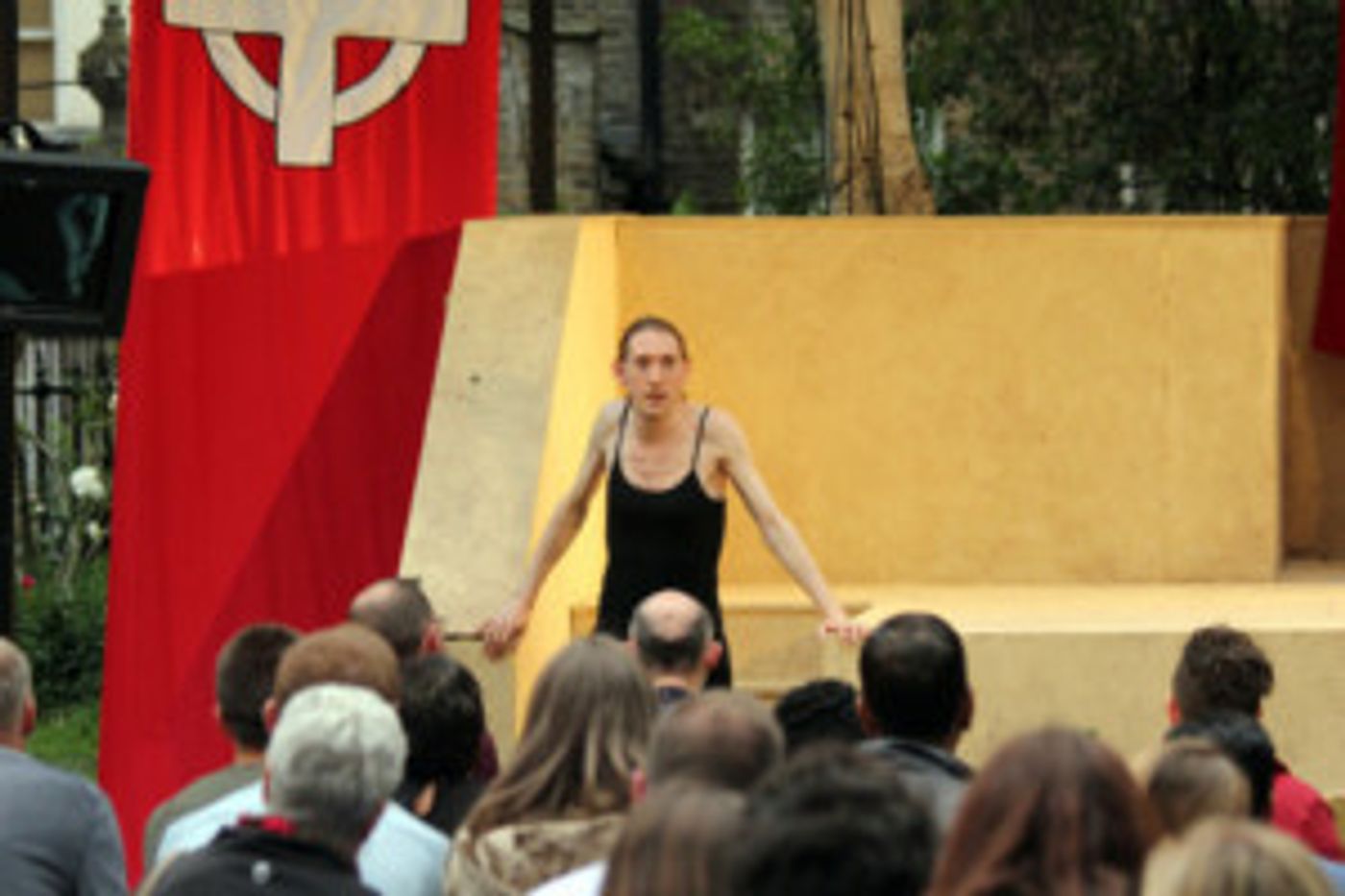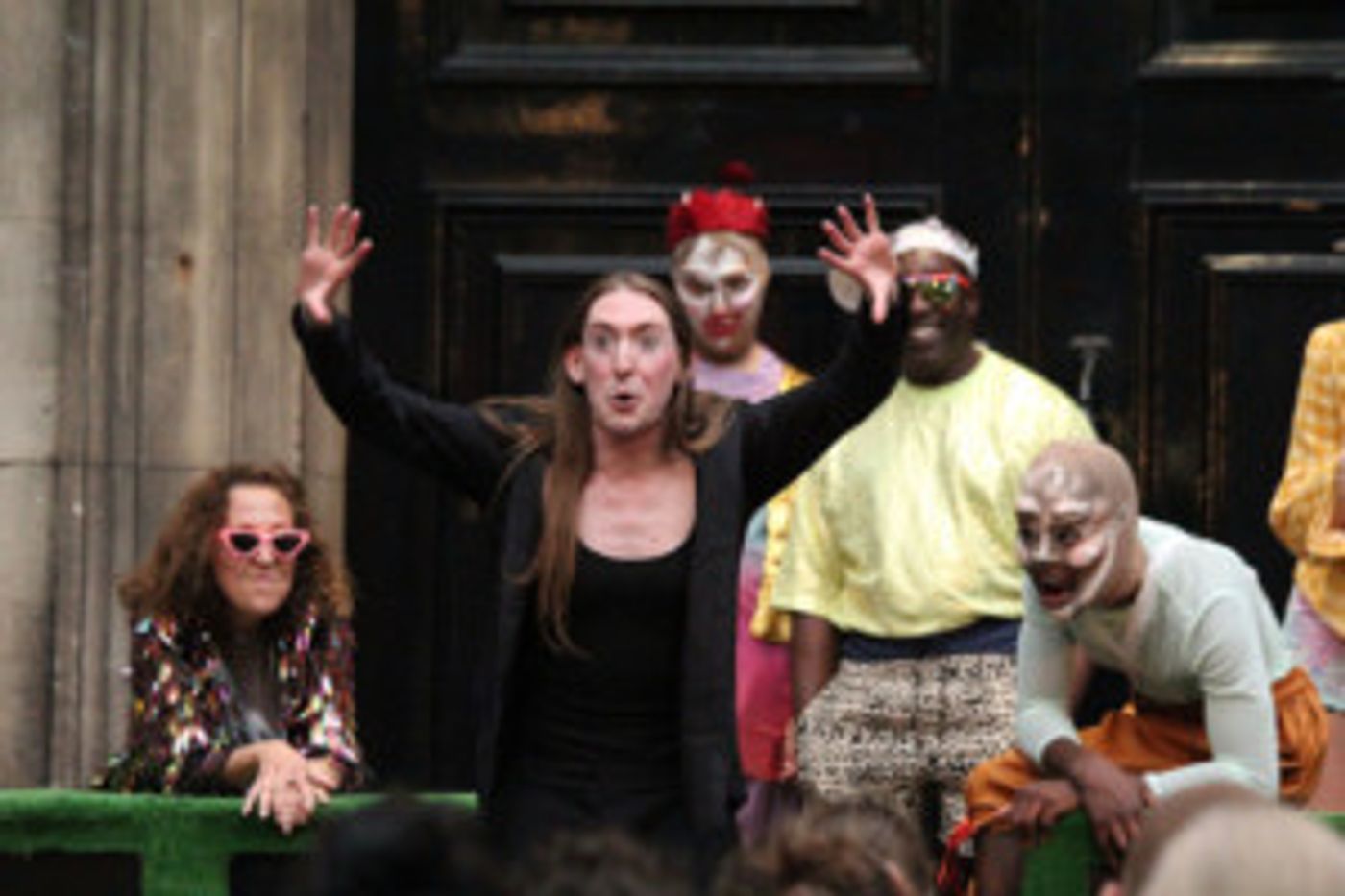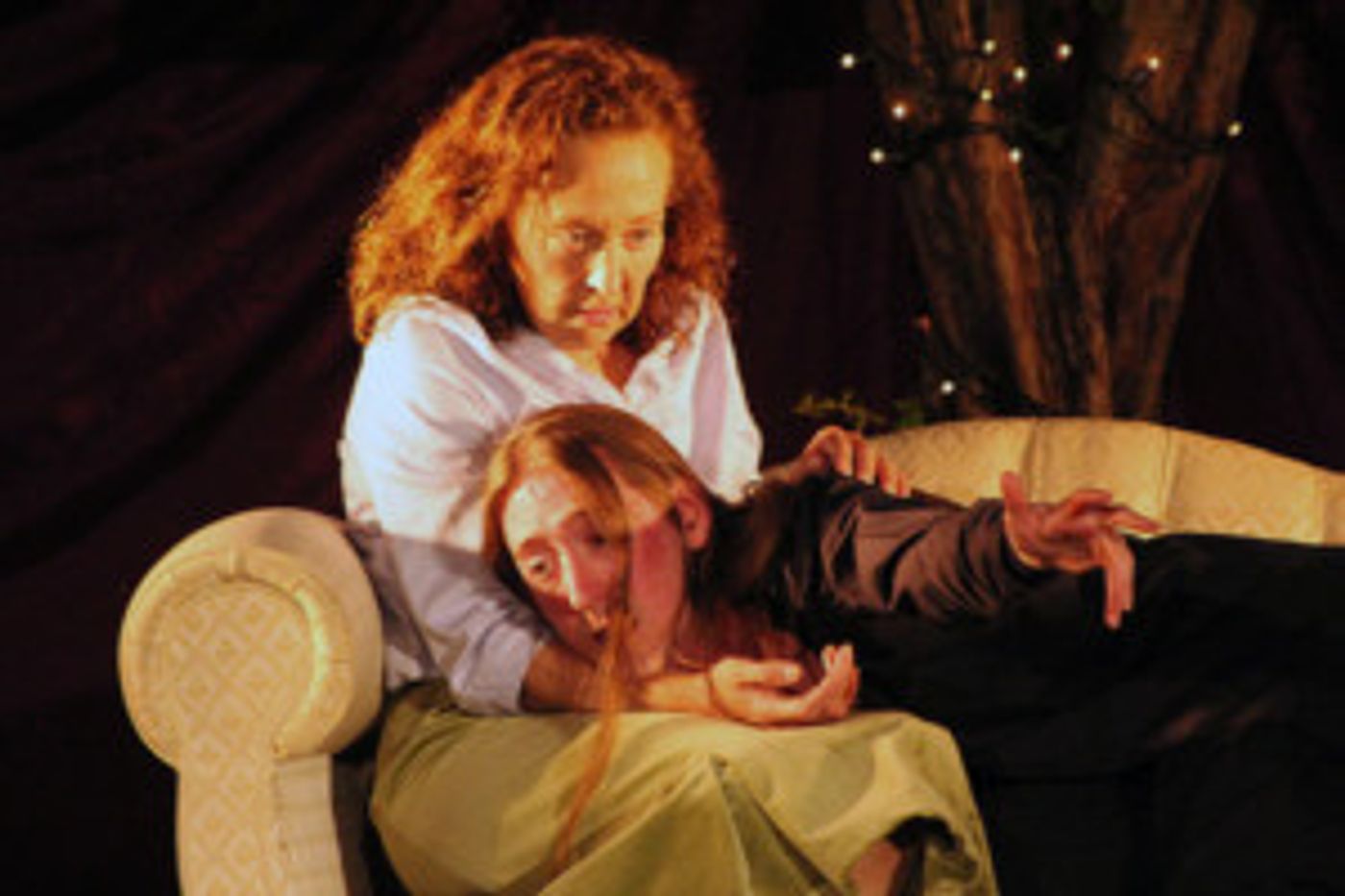Interview: Jenet Le Lacheur Talks HAMLET at St Paul's Church

in Hamlet
The grounds of St Paul's Church in Covent Garden are hosting a revolutionary staging of Hamlet. Directed by Daniel Winder, it sees non-binary transgender actor Jenet Le Lacheur taking on the main role.
We caught up with them to learn more about how gender plays a big part in the production, which interpretation of the tragic hero is their favourite, and if there's any pressure in being Hamlet.
How did you get involved in this production of Hamlet?
I went along to an audition a couple of months ago with Daniel Winder, the director. It was a very intriguing premise and the more he talked about it, the more interested I became. It felt like a very urgent and necessary thing to be doing in this climate. I was particularly taken with his ideas of how gender would play a part in his vision for the piece. I was intrigued by that and also, it's Hamlet - I'd be mad to turn it down.
Did you feel any pressure going into it?
Less than I thought I would. I've seen about half a dozen Hamlets on stage at various points in my life; some of them had a really lasting impact on me and some less. It felt like this thing which, ironically, because there was so much pressure that I kind of went "But why?".
It's such a worrying play that as soon as you key into it and you start playing in the room with the rest of the cast and find your own take on it - it becomes very hard to think about the previous versions. You feel present and spontaneous. I hope my Hamlet is kind of a new interpretation and feels fresh to audiences new and old.
Even now, I'm not feeling any kind of great pressure to create that big departure - that sort of happens naturally.
This begs the question, which production had the biggest impact on you?
It's probably a cliché, but it was very much David Tennant's. I saw it at a point in my life when I was just leaving home to go to drama school. It was a very formative period for me. It stands out in my mind among all the interpretations of Hamlet I've seen.
Even the most recent ones I've seen in the last couple of years, I can pinpoint one or two moments from them that really stuck in my memory, while with Tennant there are a dozen I could point at and go "Yes!". It's emblazoned my mind forever. There is one I struggled with the most. I've seen an amateur production in a castle, it lasted for five hours. They had picnics between each act.
I mean, it's brilliant that they're all so different. It's one of those plays which can not only withstand so many interpretations, but needs different ones. It's somehow relevant and completely fitting, no matter what's done with it.

and the cast of Hamlet
Do you have a favourite line in the play?
There are a few of them. There are lots in this production that I like purely because of their delivery, but I think in terms of lines for their own sake, there are a couple close together which I absolutely love. One is "There is nothing either good or bad, but thinking makes it so", which can be either taken in a very depressing nihilistic way or not. The other one is "I could be bounded in a nutshell and count myself a king of infinite space, were it not that I have bad dreams", which is great.
What was the biggest challenge you encountered?
The biggest challenge was probably the physical aspect. Even though the play's been cut quite heavily, it's still a real physical marathon. You can see why so many Hamlets face injuries - you're dragging bodies and sword fighting, and that's before you even get into the emotional side of it.
How would you describe your take on the character?
My Hamlet is a lot angrier than a lot I've seen. I think it's a misreading to say that he's generally quite a melancholic character. That's what they're always painting him to be. I feel like Hamlet's real driving motive is anger. His anger at the state, his anger at what he's seen unfolding before him. I suppose my take is a quite fiercely biting, acerbic, energised interpretation of the character. There's so much sass and so much fury in the lines - he's always simmering anger, all the way through.
Why is this production different?
The main thing that sets this production apart is a sense of anarchy. A lot of Hamlets try to set themselves off on the basis of a kind of anarchic take, but this has a very, very real sense of irreverence. Not with the text, I don't think, although we have made changes in some parts of the dialogue purely because we're flipping genders and doing all kinds of stuff.
But there's a very palpable sense of just not giving a shit. This is a Hamlet who is done taking any crap, in terms of the characters and in terms of the production as a whole. It's very gay. And it's very fitting that we've come out of Pride Month now - it has that sort of almost jubilant quality to it, celebrating marginalised identity within this very far-right dystopian regime that takes place.
It's really fun to contrast those reactionary surroundings with Hamlet and his band of players, who are quite robust rebels to the state.

in Hamlet
Gender and identity have a big part in the show - how does this change the story?
Strangely, it enhances it. It feels like make-up, in a way - it heightens aspects of the story that are already there, but never felt quite as fully accentuated. Hamlet has been away to university and he's come back to a world he was once familiar with, but now he's at odds with it.
It rings so true for those who've gone away from their place of birth, discovered themselves as more liberal and intellectual, and then have gone back and found that they didn't know who and what to be, they don't know how to present themselves.
Making Hamlet transfeminine - which is something we decided right at the start of the process to make the role our own, just as Andrew Scott does it in his accent while everybody else is in RP - is a really interesting thing.
It becomes really clear that Hamlet is an outsider, even though they're part of the royal family. They're part of the regime even though they're mentally rebelling against it. Gender is a great thing, it's a tool to use. Hamlet's gender identity matters to them as it does to me, but they use it to make the others more reactionary characters feel uncomfortable.
Do you think we need to rework classics to make them have more resonance?
I don't think so. I think classics are classics for a reason. They have resonance no matter what. Especially with Hamlet, where Shakespeare drew on such a personal experience having just lost his own son, it speaks of grief and universal human feelings. It does so with such eloquence that the play always resonated no matter what spin you put on it, no matter how you dress it up.
It always resonates because of the play itself - the words are doing the job. So, I don't think you need to update them, I think they're all they need to be. But you're performing them in the world that you find yourself in, so that will necessarily give a new spin and add new texture.
What can the audience expect from the show?
They can expect to have their expectations dashed. It's a fun, anarchic, joyous interpretation. But it also doesn't shy away from the darker, more grizzly themes of the play. It explores new areas, and there will be a great deal of delight and surprise at some of the places we take it.
Hamlet runs at St Paul's Church until 27 July.
Videos

